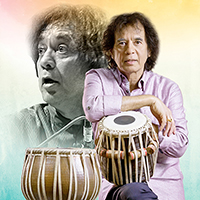A Tribute to Ustad Zakir Hussain: 73 Years of Legacy in Tabla
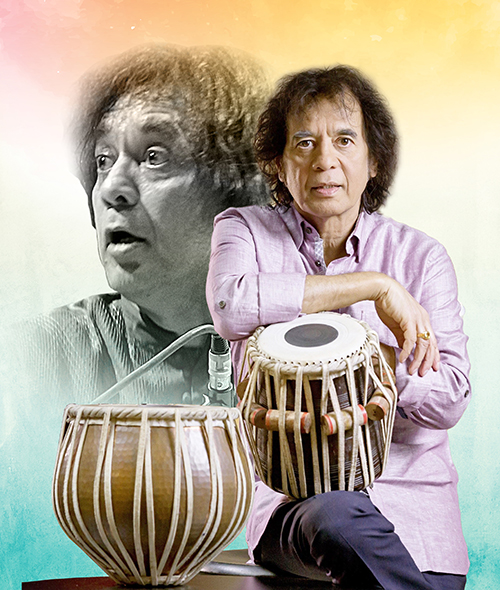 Zakir Hussain Allarakha Qureshi, born on March 9, 1951, was not only a tabla player but an icon who transformed the face of Indian classical music. He is the greatest ever tabla player; indeed, his contributions went far beyond his technical mastery; he was a virtuoso, composer, percussionist, and music producer whose influence resonated globally, crossing cultural boundaries.
Zakir Hussain Allarakha Qureshi, born on March 9, 1951, was not only a tabla player but an icon who transformed the face of Indian classical music. He is the greatest ever tabla player; indeed, his contributions went far beyond his technical mastery; he was a virtuoso, composer, percussionist, and music producer whose influence resonated globally, crossing cultural boundaries.
Born into the world of rhythm and excellent music, as the son of a legendary tabla maestro, Alla Rakha, Hussain started his training in tablas when he was very young under his father’s guidance.
As an artist, Hussain received numerous honors. His efforts paid off as he earned global recognition, winning four Grammy Awards and receiving seven nominations—an incredible achievement that cemented his status as a world music icon. In the U.S., he was conferred the National Heritage Fellowship Award, which is the best award bestowed on traditional U.S. artists.
Hussain’s fame was not merely a thing of awards. His reputation as a tabla player was iconic, as The Guardian described him as the most recognizable exponent of the tabla. The New York Times compared the speed of the fingers to the wings of a hummingbird, highlighting that he played with precision fluidity. His performances were not simply concerts but rhythmic journeys in the Indian genre of classical music, blending in with smooth jazz and world music, rendering a universal appeal.
One of the most important chapters in Hussain’s career was with the world music supergroup Tabla Beat Science, which he founded along with Bill Laswell. He infused Indian classical music with diverse global genres, revitalizing the traditional rhythms and extending his influence far beyond India. His musical explorations extended beyond the realm of world music. He has worked as an associate music director for the Merchant Ivory film Heat and Dust, released in 1983, to name but a few.
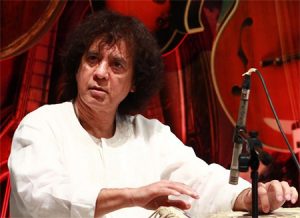 Beyond performing, Hussain was a devoted teacher and a passionate advocate for the preservation of Indian classical music. He taught at distinguished institutions such as Princeton and Stanford universities, sharing his passion and knowledge with the next generation of musicians. In recognition of his contributions to music education, the University of Mumbai awarded him an honorary Doctor of Law degree in 2022.
Beyond performing, Hussain was a devoted teacher and a passionate advocate for the preservation of Indian classical music. He taught at distinguished institutions such as Princeton and Stanford universities, sharing his passion and knowledge with the next generation of musicians. In recognition of his contributions to music education, the University of Mumbai awarded him an honorary Doctor of Law degree in 2022.
Hussain’s personal life was as culturally rich as his work. He married Antonia Minnecola, a Kathak dancer and teacher, who also handled his career. They have two daughters, Anisa and Isabella, who have pursued creative careers. Anisa is a filmmaker, and Isabella is a dancer in Manhattan. His brothers, Taufiq and Fazal Qureshi, are also accomplished percussionists who continue the family legacy of musical excellence.
The quality of his instruments spoke well of Hussain’s dedication to his craft. His tablas were handcrafted by master tabla maker Haridas Vhatkar, whom he had worked with for more than 18 years. He refrained from performing at private gatherings or corporate events, preferring to focus solely on the music.
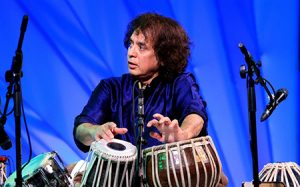 Hussain collaborated with artists from around the world, cutting across genres and continents. He frequently performed at the International Jazz Day concerts, including the one in 2016 held by President Obama. He collaborated with artists such as Béla Fleck and Edgar Meyer, pushing the limits of what the tabla could do by incorporating traditional rhythms into jazz, bluegrass, and other genres.
Hussain collaborated with artists from around the world, cutting across genres and continents. He frequently performed at the International Jazz Day concerts, including the one in 2016 held by President Obama. He collaborated with artists such as Béla Fleck and Edgar Meyer, pushing the limits of what the tabla could do by incorporating traditional rhythms into jazz, bluegrass, and other genres.
In 2024, Hussain won three Grammy Awards for his work with the fusion band Shakti for Best Contemporary Instrumental Album. This was just one of the many triumphs in a career spanning decades and influencing musicians across genres.
Hussain’s legacy also lies not just in the various awards he received but also in the fact that he took Indian classical music out into the world arena, so much so that John McLaughlin called him “the King, whose hands rhythm became magic,” while Prime Minister Narendra Modi hailed him as “the true genius who changed and transformed the world of Indian classical music.”
Zakir Hussain died on December 15, 2024, at the age of 73, but still, his legacy inspires music makers all over the globe. His influence persists, ensuring that his mastery of the tabla and significant contributions to music worldwide will endure.
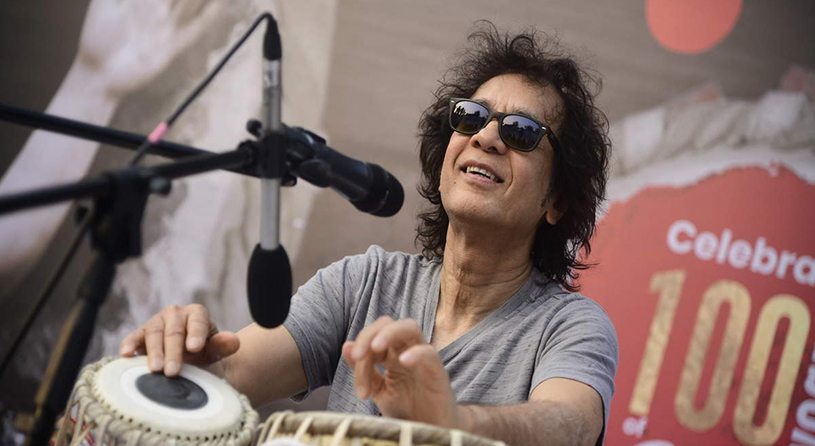
| Zakir Hussain, the world-renowned tabla maestro, was the recipient of many awards and honors: |
|
| Padma awards | Hussain was awarded the Padma Shri in 1988, Padma Bhushan in 2002, and Padma Vibhushan in 2023. |
| Grammy Awards | Hussain won four Grammy Awards, including three in 2024. He was the first Indian to win three Grammys in one night. |
| National Heritage Fellowship | In 1999, Hussain received this award from the National Endowment for the Arts, the highest honor for traditional artists in the United States. |
| Sangeet Natak Akademi Award | In 1990, Hussain received this award from the President of India. He also became a Fellow of the Sangeet Natak Akademi in 2019. |
| Indo-American Award | In 1990, Hussain received this award for his cultural contributions to relations between the United States and India. |
| SFJazz Lifetime Achievement Award | In 2017, Hussain received this award for his contributions to music. |
| Aga Khan Award | In 2022, Hussain received this award for his contributions to the musical heritage of humanity. |
| Old Dominion Fellow | In 2005, Hussain was named an Old Dominion Fellow by the Humanities Council at Princeton University. |
| Concertos | Hussain composed music for several films and major events, including three concertos. His third concerto was the first tabla concerto performed by an orchestra. |
| Hussain was also an educator who conducted workshops and lectures at prestigious institutions like Princeton University and Stanford University |
|

